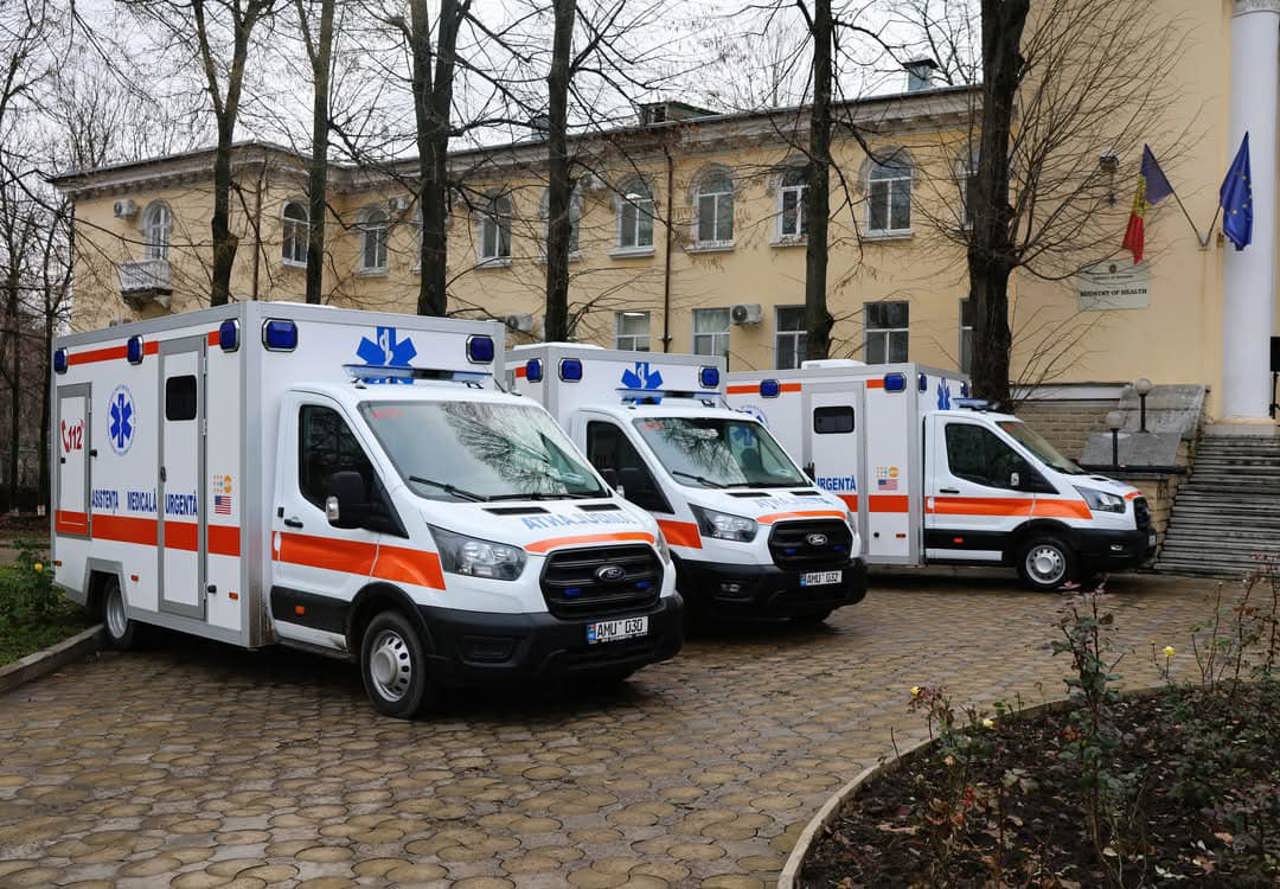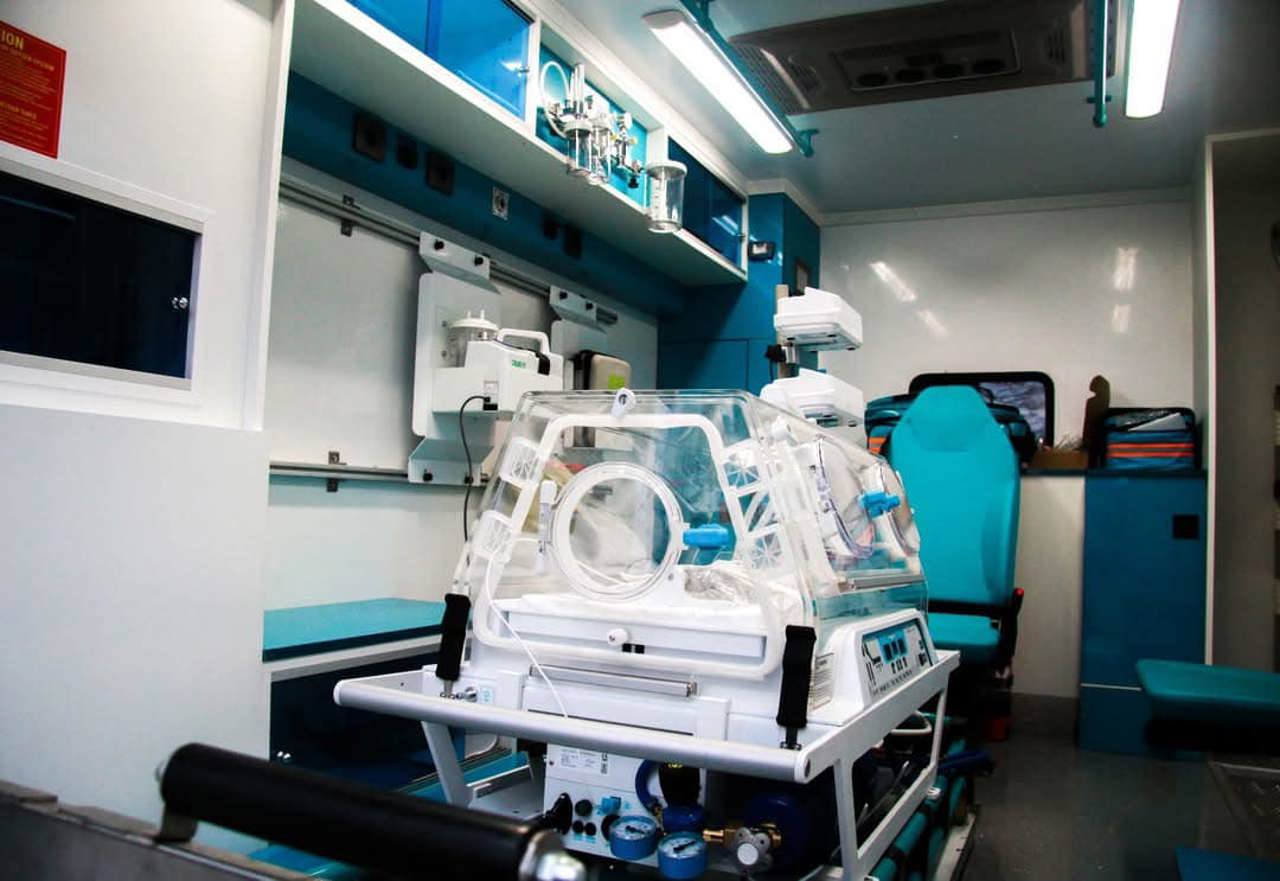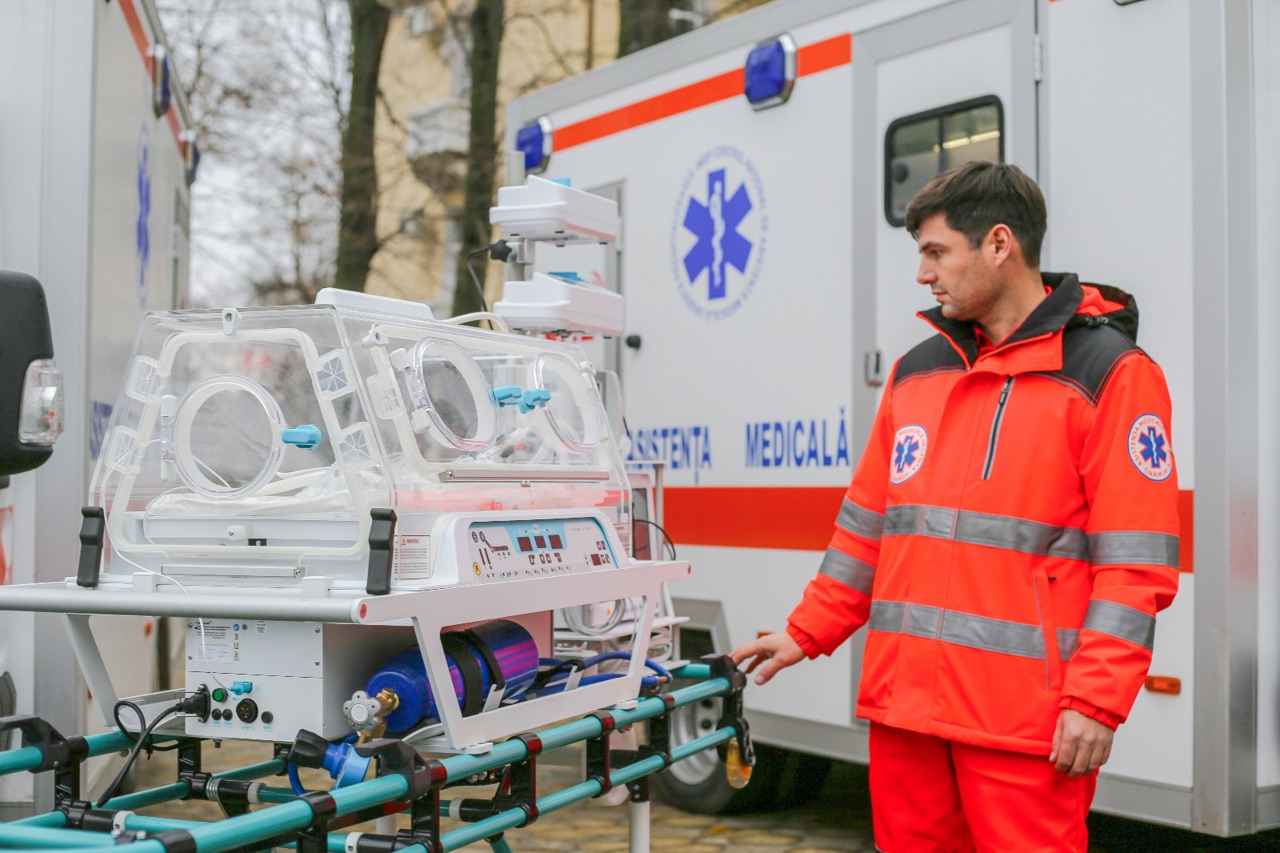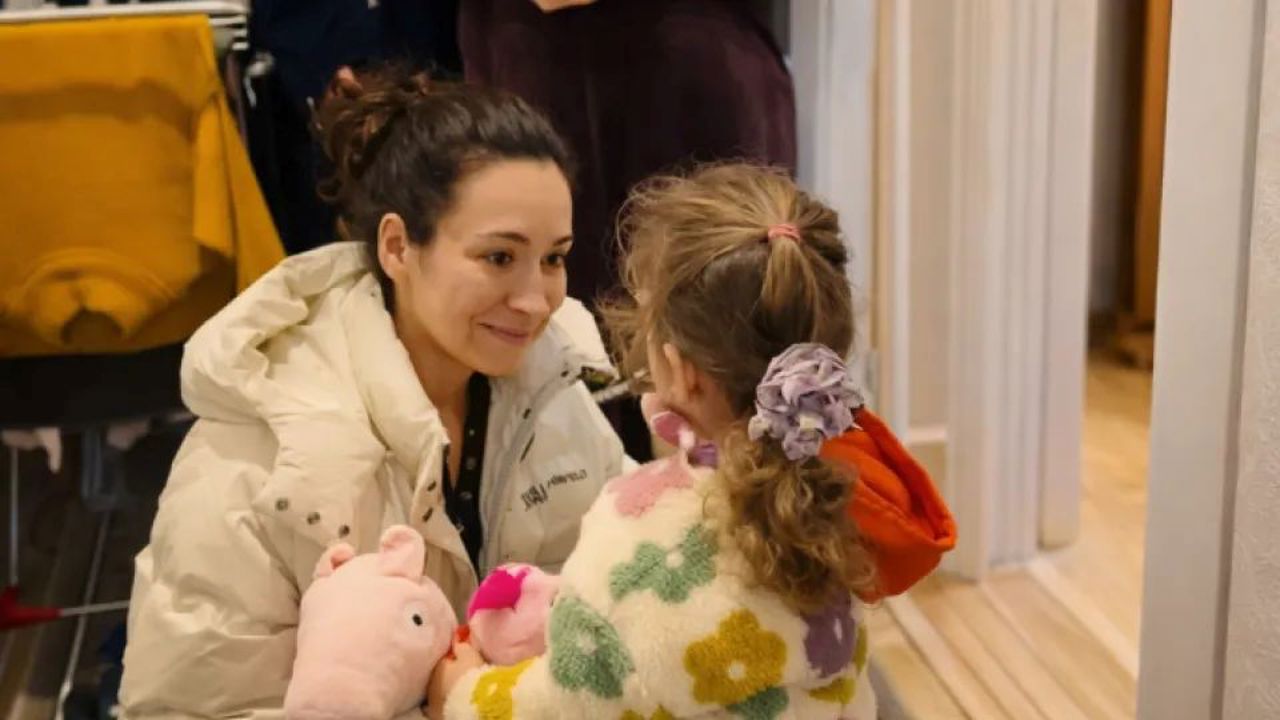Moldova boosts neonatal care with new ambulances
Three fully equipped advanced life support ambulances, capable of transporting critically ill newborns, have been donated to the National Center for Consultation and Inter-Hospital Transfer.

These state-of-the-art vehicles are equipped with transport incubators, neonatal ventilators, and vital signs monitors, ensuring uninterrupted operation thanks to their self-sufficient power systems.
"If a newborn needs to be transported, they are placed in a transport incubator," explained Victor Corciu, head of the National Center for Consultation and Inter-Hospital Transfer. "We create the necessary conditions, provide ventilation support if needed, and maintain a constant temperature while monitoring their vital signs. Babies born in rural areas who require specialized treatment can now be safely transported in these ambulances."

These advanced life support ambulances, or Type C ambulances, cost eight million lei each. "In the last two years alone, we have provided medical teams with 206 Type A, B, and C ambulances," said Minister of Health Ala Nemerenco. "Today, we've added three more, bringing the total to 209 ambulances, with a combined cost of 268 million lei."
The ambulances were donated by the United Nations Population Fund with financial support from the U.S. Government. "These ambulances represent the ongoing commitment of the United States Government to support Moldova's efforts to provide quality, accessible healthcare for all, including Ukrainian refugees," said Kevin Covert, a representative of the U.S. Embassy.
On the same day, the National Center for Pre-Hospital Emergency Medical Assistance and the Bălți Clinical Hospital received training equipment, including anatomical mannequins. These mannequins will enable medical staff to enhance their obstetric and gynecological care skills. "These mannequins are advanced, as they can simulate the birthing process," noted Leonte Macarov, a representative of the CNAMUP training center. "We can use them to practice emergency medical assistance during childbirth, providing care during pregnancy, and simulating fetal heart rates."

In 2023, the Pre-Hospital Emergency Medical Assistance Service provided assistance in over 740,000 cases, handling an average of 2,000 emergencies daily.
Translation by Iurie Tataru





